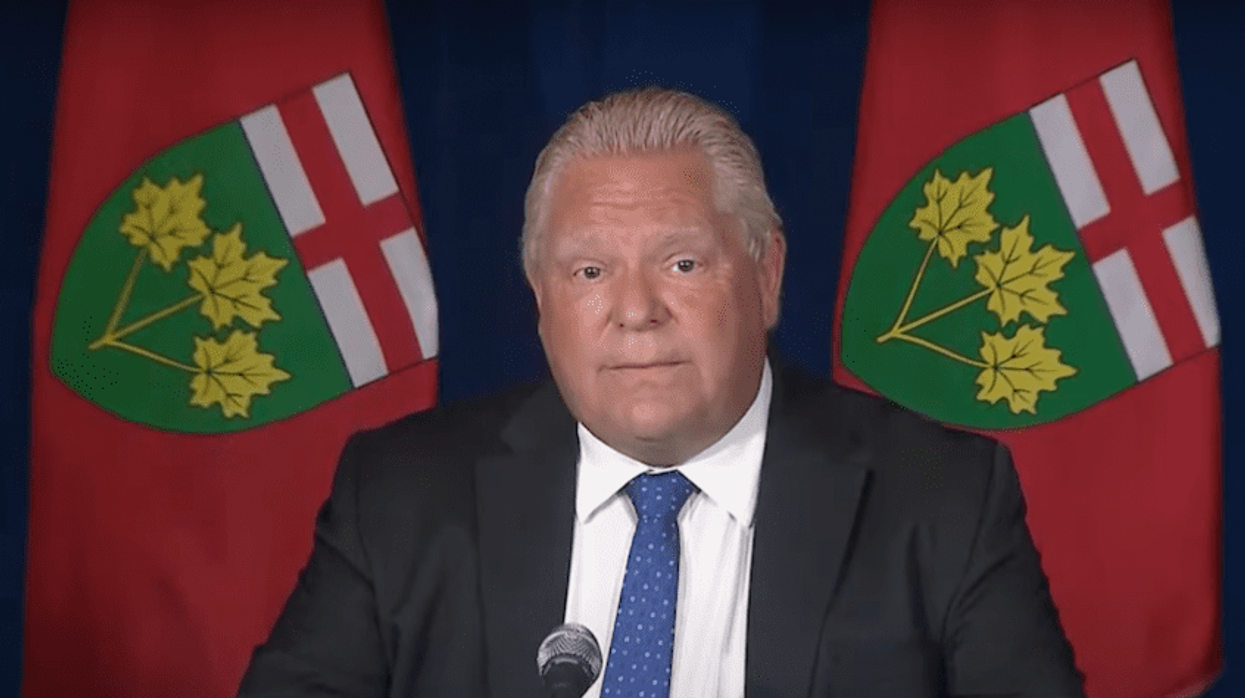Ontario Premier Doug Ford has confirmed the rollout of the province's impending vaccination certificates — commonly called a COVID-19 vaccine passport.
In consultation with the Chief Medical Officer of Health, the Ford government will now require people to be fully vaccinated and provide proof of their vaccination status to access certain businesses and settings starting September 22, 2021.
The government says requiring proof of vaccination in these settings reduces risk and is an important step to encourage every last eligible Ontarian to get their shot, which is critical to protecting the province’s hospital capacity while also supporting businesses with the tools they need to keep customers safe, stay open and minimize disruptions.
As of September 22, fully vaccinated Ontarians will need their vaccine receipt with a valid photo identification -- such as a driver's license or health card -- to enter premises covered under the new system, similar to the initial model announced in British Columbia.
Officials said that the enhanced certificate system is meant to be temporary, though how long it remains in place will depend on how the fourth wave of the pandemic unfolds in the coming months.
READ: Ontario’s Pandemic Response Was So Bad it Drove People to Move Out of Province
The receipts can be printed or downloaded as a PDF file to smartphones from the provincial booking portal or by calling the Provincial Vaccine Booking Line at 1-833-943-3900. "Fully vaccinated" means having had two doses, with the most recent at least 14 days prior. Neither a recent COVID-19 infection nor a recent negative test will substitute for two shots.
The government says that on October 22, it will also introduce an enhanced digital vaccine receipt that features QR codes -- containing much of the same information included on the receipts that are already available.
That shift will be accompanied by the release of a "verification app" that can be used to validate the QR codes and provide the vaccination status of an individual, ultimately making it easier and more convenient for businesses and organizations to read and verify that a digital vaccine receipt is valid.
The government said the digital vaccine receipt is "safe, more secure, and with you wherever you go." This digital vaccine receipt can be kept on a phone and easily used to show that you've been vaccinated if you need to.
The intention is that the enhanced certificates be usable in other provinces with vaccine passport systems in place -- and eventually for them to be integrated with the federal passport for international travel, officials said.
“As the world continues its fight against the Delta variant, our government will never waver in our commitment to do what’s necessary to keep people safe, protect our hospitals and minimize disruptions to businesses,” said Premier Ford.
“Based on the latest evidence and best advice, COVID-19 vaccine certificates give us the best chance to slow the spread of this virus while helping us to avoid further lockdowns. If you haven’t received your first or second dose of the COVID-19 vaccine, please do so today.”
According to the Premier's office, proof of vaccination will be required in higher-risk indoor public settings where face coverings cannot always be worn, including:
- Restaurants and bars (excluding outdoor patios, as well as delivery and takeout);
- Nightclubs (including outdoor areas of the establishment);
- Meeting and event spaces, such as banquet halls and conference/convention centres;
- Facilities used for sports and fitness activities and personal fitness training, such as gyms, fitness and recreational facilities with the exception of youth recreational sport;
- Sporting events;
- Casinos, bingo halls and gaming establishments;
- Concerts, music festivals, theatres and cinemas;
- Strip clubs, bathhouses and sex clubs;
- Racing venues (e.g., horse racing).
These requirements will not apply in outdoor settings where transmission risk is lower, including patios, except for outdoor nightclubs.
Further, the requirements will not apply to settings where people receive medical care, access food from grocery stores, purchase medical supplies, and the like.
Indoor masking policies will remain in place, in alignment with public health measures.





















